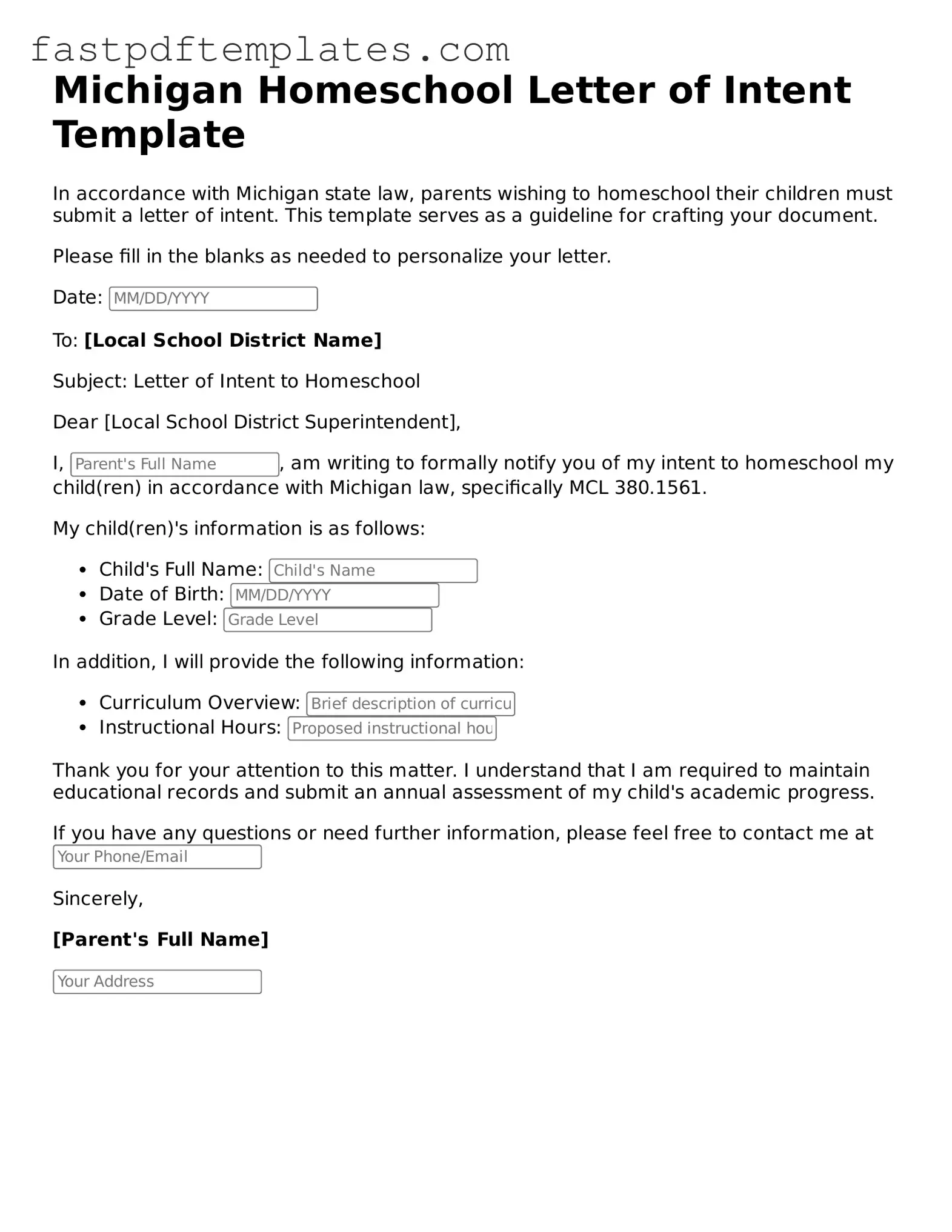Attorney-Approved Michigan Homeschool Letter of Intent Document
The Michigan Homeschool Letter of Intent form is a document that parents must submit to officially notify their local school district of their decision to homeschool their children. This form serves as a critical step in the homeschooling process, ensuring compliance with state regulations. By completing and submitting this form, families take an important step toward providing personalized education tailored to their children's needs.
Access Document

Attorney-Approved Michigan Homeschool Letter of Intent Document
Access Document
Your form still needs completion
Complete your Homeschool Letter of Intent online and download the final PDF.
Access Document
or
Click for PDF Form
